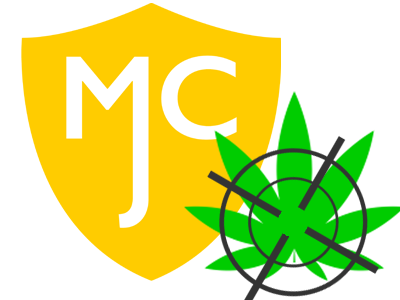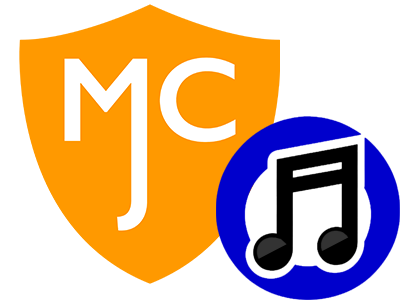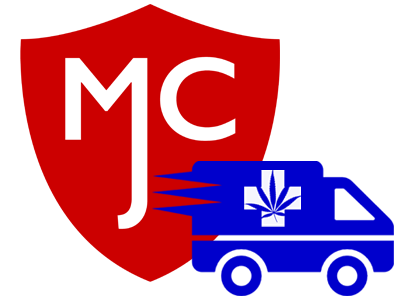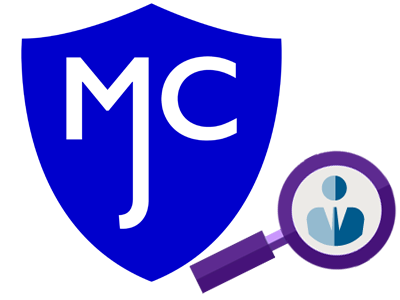
Welcome to our comprehensive guide on cocaine detox. This article will provide you with valuable information on how to rid your body of cocaine and embark on a drug-free life. We will walk you through the detox process, highlight common withdrawal symptoms, and explain the importance of medical detox. So, let’s dive in and learn everything you need to know about cocaine detox!
Key Takeaways:
- Cocaine detox is a crucial step towards living a drug-free life.
- The detox process involves clearing the drug and its by-products from the body.
- Medical detox is recommended for cocaine detox as it offers a dedicated treatment plan and support system.
- Withdrawal symptoms of cocaine detox can include depression, agitation, fatigue, and increased appetite.
- Seeking professional help and support is essential for a successful cocaine detox and long-term recovery.
How Long Does Cocaine Stay in the Body?
The duration of cocaine in the body can vary depending on several factors, including the method of use and the duration of use. Different types of drug tests can detect cocaine and its metabolites in the body for varying lengths of time.
Types of Drug Tests:
- Blood Test: This test can detect cocaine up to 2 days after the last use.
- Saliva Test: Cocaine can be detected in saliva for up to 2 days.
- Urine Test: Cocaine can be detected in urine for up to 3 days.
- Hair Test: Hair tests have the longest detection window and can detect cocaine for months or even years.
It is important to note that chronic users may test positive for longer periods of time due to the accumulation of the drug and its by-products in the body.
“Different types of drug tests can detect cocaine and its metabolites in the body for varying lengths of time.”
Understanding how long cocaine stays in the body is crucial for individuals who are undergoing detoxification or are required to undergo drug testing.
| Drug Test Type | Detection Window |
|---|---|
| Blood Test | Up to 2 days |
| Saliva Test | Up to 2 days |
| Urine Test | Up to 3 days |
| Hair Test | Months or even years |
It is important to consult with a medical professional or addiction specialist for personalized guidance on detoxification and the duration of cocaine detection in the body.
The Cocaine Detox Process
Detoxification from cocaine involves clearing both the drug and its metabolites from the body. During the detox process, drug tests are conducted to identify the presence of these metabolites, which can remain in the system for days or even weeks. Proper management of withdrawal symptoms is also an essential part of the detox process.
Medical detox, whether inpatient or outpatient, is the recommended approach for cocaine detox. It provides individuals with a dedicated treatment plan, a supportive environment, and access to a range of therapies and medications to reduce cravings and manage symptoms.
Throughout the detox process, it is important to work closely with treatment specialists who can guide individuals through the challenges they may face. This includes addressing the physical and psychological withdrawal symptoms associated with cocaine detox, offering support, and helping individuals develop coping strategies.
Cocaine Withdrawal Symptoms
Withdrawal from cocaine can be a challenging process, often accompanied by various physical and psychological symptoms. These symptoms can differ in severity and duration depending on factors such as the individual’s level of dependence and overall health. It’s important to recognize and understand these withdrawal symptoms to better navigate the recovery process.
Physical Symptoms:
- Increased appetite
- Fatigue
- Restlessness
- Tremors or shakiness
- Muscle aches and pains
Psychological Symptoms:
- Depression
- Anxiety
- Irritability
- Mood swings
- Difficulty concentrating
These withdrawal symptoms can make the recovery process challenging, but it’s important to remember that they are temporary and a sign that the body is adjusting to being drug-free. Seeking professional guidance and support during this time can greatly enhance the chances of a successful recovery.
Cocaine withdrawal symptoms can vary for each individual, and it’s crucial to remember that everyone’s journey is unique. It’s essential to have patience, practice self-care, and surround yourself with a supportive network of professionals and loved ones to help you through this process.
| Withdrawal Symptom | Duration | Management Strategies |
|---|---|---|
| Depression | Varies, can last for weeks | Therapy, support groups, medication (if necessary) |
| Anxiety | Varies, can last for weeks | Relaxation techniques, mindfulness, counseling |
| Increased appetite | Varies, can last for weeks | Healthy eating, portion control, regular exercise |
| Fatigue | Varies, can last for weeks | Proper sleep hygiene, balanced diet, exercise |
Managing withdrawal symptoms during cocaine detox requires a comprehensive approach that addresses both the physical and psychological aspects. Engaging in activities that promote overall well-being, such as regular exercise, maintaining a healthy diet, and practicing stress-reduction techniques, can help alleviate some of these symptoms. Remember, seeking professional help and support is crucial throughout the recovery process.
Treatment Options for Cocaine Addiction
When it comes to overcoming cocaine addiction, there are several treatment options available. The choice of treatment depends on the individual’s needs, preferences, and the severity of their addiction. Inpatient treatment and outpatient treatment are two common approaches that can help individuals on their path to recovery.
Inpatient Treatment
Inpatient treatment, also known as residential treatment, involves staying at a hospital or rehab center for a specific period of time. This type of treatment provides intensive care, 24/7 supervision, and a structured environment to support the recovery process. Inpatient treatment is ideal for individuals with severe addiction or those who require a safe and controlled environment to detox and begin their journey towards sobriety.
Outpatient Treatment
Outpatient treatment is a flexible option that allows individuals to receive treatment while living at home. This type of treatment is suitable for those with a supportive home environment and mild to moderate addiction. Outpatient programs offer counseling, therapy sessions, and support group meetings, providing individuals with the tools and resources they need to overcome their addiction.
“Inpatient treatment provides intensive care, 24/7 supervision, and a structured environment to support the recovery process.”
Recovery Resources
Regardless of the chosen treatment approach, there are various resources available to support individuals on their journey to recovery. These resources can include support groups, addiction counselors, therapists, and community organizations. Seeking help from these resources can provide individuals with the guidance, support, and accountability they need to maintain long-term sobriety.
Table: Comparison of Inpatient and Outpatient Treatment
| Treatment Option | Key Features |
|---|---|
| Inpatient Treatment | 24/7 supervision, intensive care, structured environment |
| Outpatient Treatment | Flexibility, ability to live at home, counseling and therapy |
Choosing the right treatment option is a crucial step towards overcoming cocaine addiction. Whether an individual opts for inpatient or outpatient treatment, the most important aspect is committing to the recovery process and utilizing the available resources to achieve long-term sobriety.
How Zinnia Health Can Help With Cocaine Addiction
At Zinnia Health, we understand that the recovery journey from cocaine addiction can be challenging. That’s why we offer a range of treatment programs designed to provide a safe and supportive environment for individuals seeking to overcome their addiction. Our goal is to customize the treatment to meet the unique needs of each individual, ensuring the highest level of care and support throughout their recovery.
Our treatment programs at Zinnia Health are designed to treat the whole person, addressing not only the physical dependence on cocaine but also the underlying factors that contribute to addiction. We believe in aligning the recovery journey with long-term life goals, empowering individuals to build a healthier, drug-free life. Our dedicated team of professionals provides a safe and non-judgmental environment where individuals can feel supported and understood.
One of the unique therapies we offer at Zinnia Health is music therapy. Music has the power to heal and inspire, and it can be a valuable tool in the recovery process. Music therapy can help individuals express their emotions, reduce stress and anxiety, and promote relaxation. It can also serve as a positive and constructive outlet for individuals to channel their energy and creativity, aiding in their overall recovery journey.
At Zinnia Health, we are committed to providing the highest quality of care and support to individuals on their recovery journey. We understand that each person’s experience with addiction is unique, and we strive to customize our treatment plans to meet their individual needs. With our safe environment, customized treatment programs, and holistic approach, we are here to support individuals in achieving long-term sobriety and a healthier, drug-free life.
| Treatment Programs | Description |
|---|---|
| Inpatient Treatment | Our inpatient treatment program provides a comprehensive and intensive approach to cocaine addiction recovery. Individuals reside at our facility and receive round-the-clock care and support from our expert team. |
| Outpatient Treatment | For individuals with a supportive home environment, outpatient treatment may be a suitable option. This program allows individuals to receive treatment while still living at home and attending to their daily responsibilities. |
| Customized Treatment Plans | We believe in tailoring our treatment plans to meet the unique needs of each individual. Our team works closely with individuals to develop a treatment plan that addresses their specific challenges and goals. |

The Role of Nutrition in Cocaine Detox
Substance abuse often leads to nutrition deficiencies and unhealthy dietary choices. During the cocaine detox process, it is crucial to prioritize healthy eating habits to support overall recovery. Consuming regularly scheduled, balanced meals that contain proper caloric and nutritional values is essential for replenishing the body’s nutrient stores and promoting healing.
Proper nutrition during detox helps to counteract the negative effects of substance abuse on the body. Substance abuse can reduce daily nutrition intake, making it even more vital to address nutritional deficiencies during the detoxification process. By prioritizing a healthy diet, individuals can improve their overall well-being and enhance the effectiveness of the detox process.
In addition to a focus on nutritious meals, it is important to stay hydrated during cocaine detox. Drinking an adequate amount of water throughout the day helps to flush out toxins, supports organ function, and aids in overall recovery. Dehydration can exacerbate withdrawal symptoms and make the detox process more challenging. Therefore, maintaining proper hydration levels is crucial for minimizing discomfort and ensuring a successful detoxification journey.
The Importance of Healthy Dietary Choices
“Nutrition deficiencies can contribute to feelings of fatigue, increased cravings, and hinder the body’s ability to heal. By making healthy dietary choices, individuals can support their physical and mental well-being as they navigate the challenges of cocaine detox.”
By focusing on balanced meals and proper hydration, individuals undergoing cocaine detox can optimize their chances of a successful recovery. Nutrient-rich foods, such as fruits, vegetables, lean proteins, and whole grains, provide essential vitamins and minerals that aid in the healing process. Avoiding processed foods, sugary snacks, and caffeine can help regulate blood sugar levels and reduce cravings during detox.
| Key Nutrients for Cocaine Detox | Food Sources |
|---|---|
| Protein | Lean meats, fish, eggs, tofu, legumes |
| Omega-3 Fatty Acids | Fatty fish (salmon, mackerel), walnuts, chia seeds |
| Antioxidants | Colorful fruits and vegetables (berries, kale, spinach) |
| B Vitamins | Whole grains, leafy greens, nuts, seeds |
| Magnesium | Dark chocolate, nuts, legumes, leafy greens |
By incorporating these key nutrients into their diet, individuals can support their body’s natural detoxification processes, address nutritional deficiencies, and promote overall healing and well-being.

Healthy Habits for Cocaine Detox
During the cocaine detox process, it is important to adopt healthy habits that support your recovery journey. These habits can help you overcome sugar cravings, maintain a nutritious diet, quit smoking, get enough sleep, and incorporate regular exercise into your routine. By prioritizing these healthy habits, you can enhance your physical and mental well-being, making the detoxification process more manageable and effective.
1. Controlling Sugar Cravings
Sugar cravings can be intense during addiction recovery, but indulging in excessive sugar can negatively impact your health and recovery progress. To control these cravings, opt for healthier alternatives like fruits or natural sweeteners. Gradually reducing your sugar intake while nourishing your body with nutritious foods will help stabilize your blood sugar levels and support overall wellness.
2. Maintaining a Nutritious Diet
A nutritious diet is vital for restoring your body’s health and addressing any nutritional deficiencies caused by substance abuse. Eat regular meals that consist of a balance of protein, whole grains, fruits, vegetables, and healthy fats. This will provide your body with the essential nutrients it needs for recovery and help minimize cravings, stabilize your mood, and boost your energy levels.
3. Quitting Smoking
Smoking can exacerbate the harmful effects of drug addiction and hinder the detoxification process. Quitting smoking is an important part of achieving a healthier, drug-free life. Seek support from a healthcare professional or join a smoking cessation program to improve your chances of success. Quitting smoking will improve your lung health, increase your overall fitness, and promote a faster recovery.
4. Prioritizing Sleep and Rest
Getting enough sleep and rest is crucial during the detox process. Sleep deprivation can contribute to increased cravings, mood swings, and difficulty managing withdrawal symptoms. Aim for 7-9 hours of quality sleep per night and establish a regular sleep schedule to improve your overall well-being and support your body’s healing process.
5. Regular Exercise
Regular exercise has numerous physical and mental health benefits that can greatly aid in cocaine detox and recovery. Engaging in physical activity helps reduce cravings, improve mood, increase energy levels, and promote overall well-being. Incorporate activities you enjoy into your routine, such as walking, jogging, yoga, or dancing. Start slowly and gradually increase your level of activity to avoid overexertion.

| Healthy Habits | Benefits |
|---|---|
| Controlling Sugar Cravings | Stabilizes blood sugar levels and supports overall wellness |
| Maintaining a Nutritious Diet | Restores body’s health, minimizes cravings, stabilizes mood, and boosts energy levels |
| Quitting Smoking | Improves lung health, increases overall fitness, and promotes faster recovery |
| Prioritizing Sleep and Rest | Supports the body’s healing process, reduces cravings, and improves mood |
| Regular Exercise | Reduces cravings, improves mood, increases energy levels, and promotes overall well-being |
Conclusion
At Zinnia Health, we understand that breaking free from cocaine addiction is a courageous step towards recovery. Our professional detox programs, whether medical or holistic, provide a safe and supportive environment for detoxification.
Whether you choose inpatient or outpatient treatment options, our goal is to support your long-term recovery. We believe that mental health support is crucial for individuals with co-occurring disorders, and we provide comprehensive care to address all aspects of your well-being.
With our cocaine detox programs, you can achieve long-term sobriety and embrace a healthier, drug-free life. Our team of experts is dedicated to guiding you through every step of your recovery journey, ensuring that you receive the personalized care and support you deserve. Take the first step towards a brighter future by reaching out to us today.
FAQ
How long does cocaine stay in the body?
The duration of cocaine in the body depends on factors such as the method of use and the duration of use. Blood tests can detect cocaine up to 2 days after the last use, saliva tests up to 2 days, urine tests up to 3 days, and hair tests can detect cocaine for months or even years. Chronic users may test positive for longer due to the build-up of the drug and its by-products.
What is the detox process for cocaine?
Detoxification from cocaine involves clearing both the drug and its metabolites from the body. Drug tests look for these metabolites, which can stay in the system for days or weeks. The detox process is not just about clearing the drug, but also managing withdrawal symptoms. Medical detox, whether inpatient or outpatient, is recommended for cocaine detox. It involves a treatment plan, support system, and may include medications or therapies to reduce cravings and manage symptoms.
What are the common withdrawal symptoms during cocaine detox?
Withdrawal symptoms from cocaine can vary for individuals, but common symptoms include depression, anxiety, agitation, fatigue, increased appetite, and reduced activity. The recovery process is different for everyone, and it can be particularly challenging for individuals with a mental health condition. Working with treatment specialists is important for managing and overcoming these symptoms during the detox process.
What are the treatment options for cocaine addiction?
Inpatient treatment, such as at a hospital or rehab center, provides intensive treatment and 24/7 support. Outpatient treatment can be suitable for individuals with a supportive home environment. It’s important to avoid substituting one addiction for another, such as with alcohol or opioids. Treatment is available regardless of insurance coverage, and any clinician can help connect you with the right resources for drug addiction and recovery.
How can Zinnia Health help with cocaine addiction?
Zinnia Health offers a safe and non-judgmental environment for recovery from cocaine addiction. Their treatment programs are designed to treat the whole person and align recovery with long-term life goals. They provide a range of therapies and techniques to ease the recovery journey, including music therapy. Zinnia Health offers a 24/7 helpline for confidential questions and support.
What role does nutrition play in cocaine detox?
Substance abuse can lead to poor nutrition and unhealthy dietary choices. During cocaine detox, it’s important to prioritize healthy eating habits. Regularly scheduled, balanced meals containing proper caloric and nutritional values are crucial. Substance abuse can reduce daily nutrition intake, making detox and a proper diet even more vital for overall recovery. It’s also important to stay hydrated during detox to avoid negative side effects.
What are some healthy habits to adopt during cocaine detox?
Sugar cravings are common during addiction recovery, but it’s important to control these cravings and prioritize a nutritious diet. Eating regular meals that are rich in protein and nutrients can help control cravings and rebuild health. In addition to a nutritious diet, healthy habits like quitting smoking, maintaining a positive mindset, getting enough sleep, and exercising regularly contribute to a healthier lifestyle during detox.















